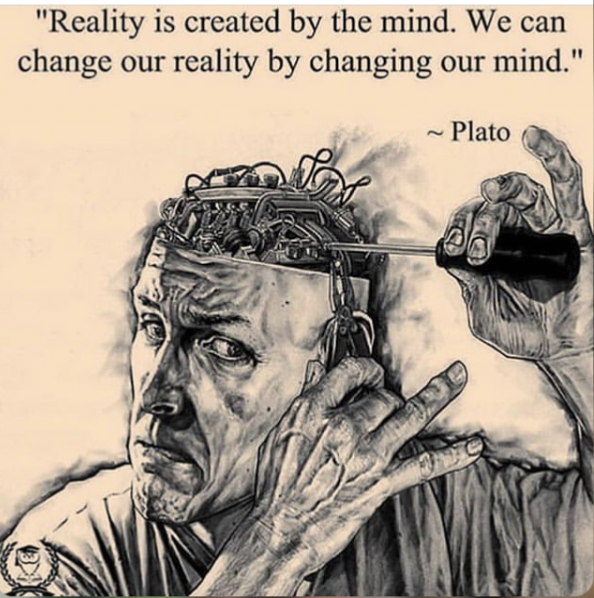TL;DR
We act in accordance to the habitual narrative we tell ourselves.
Whom am I speaking to? Who is this going to help?
The person with negative thoughts.
My Practical Experience
Here’s a practical example: how many times do we tell ourselves “oh, I forget what I was going to say”, or “I’m bad at remembering things”, etc.
No. Stop telling yourself that.
When I was driving, I remember thinking, “Shoot, what was I going to do?”, and my next thought was going to be, “oh well, I guess I forgot”–BUT I stopped myself, and instead I told myself “I have amazing memory, I remember what I was going to do”–and IT WORKED!
The realization I get from this example extends to many things we falsely tell ourselves. Some of which include:
- I’m bad at socializing
- I’m bad at driving
- I’m bad at reading
- I’m bad at my current job
- I’m bad at setting boundaries with people
And the list goes on.
The Habitual Narratives we tell ourselves
What’s worse is when we habitually tell ourselves these inner narratives about ourselves.
One thing I learned from CBT is that our thoughts guide our actions. Here are a few examples of what I mean:
- If we tell ourselves that we are losers, we begin acting like we are losers to collect evidence to further validate that claim
- If we tell ourselves that we are stupid, then we actively behave is such as way as to confirm our perceived stupidity
- If we tell ourselves that we have bad genes, then we’re less likely to take reasonable lifestyle changes that could lead to a happier and healthier life.
Let’s really think about this for a moment. Your actions, right now, are a product of the iterative story you’ve been telling yourself.
Maybe the story comes from other people injecting their own insecurities onto you, or maybe it comes from your own self doubt. Regardless of its source, YOU are both the problem AND the solution–and this is AMAZING NEWS because it means that your best life lies in your own hands. You, and only you, can change the outcome of your life, by simply choosing to change the story you tell yourself. You don’t have to depend on anyone else to save you, you are your own hero, you are the captain of your soul and the master of your fate.
Another practical example I think of is when I helped my father with a computer task. I realized from that incident that my own mental attitude was more important than my expertise in IT-troubleshooting.
Call it attitude, mindset, narrative, whatever–the same idea holds true: What we tell ourselves drives our actions
On Complaining: Why I no longer complain (or at least do my best to think positively)
Look, your mind is your most powerful asset; why would you give up your superpower to such little thinking of complaining?
Complaining is an example of a habitual, negative thought pattern/narrative. It strips our power away because we only complain about things that we choose to label as outside of our control.
Instead of complaining, we can choose to label ourselves as the “problem”, which is good because that paradoxically leaves us the power to change our lives at that very instant. The moment we stop complaining is the moment we are in control of our reality–because reality is created from the mind, and our dominant thought patterns are what guide our actions.
If you’re going to let complaining dominate your thought patterns, then your actions will validate those core beliefs by acting as a victim to your circumstances, rather than the the hero to your story, or the captain of your fate.
How does this opinion explain how the world really works in a way that accurate, wholistic, and realistic?
The world is full of people who don’t know how to think for themselves because they haven’t taken the time to challenge some of their stories, beliefs or narratives.
If you want to get a promotion at your job, be happier in life, find truth, make friends, and have amazing health, it all starts from making the smallest change to your thinking habits.
Thanks for the advice, now how can I practically put this to use in a simple way for daily execution?
Change your story. Try it for 30 days, and start with just one story you find yourself telling yourself that you want to change. Maybe you are forgetful, or maybe you don’t have any friends.
There are a lot of stories we tell ourselves that we can change, but start with ONE story. Ideally, keep it simple, trivial, and seemingly easy to complete.
The goal of this 30 days is to prove to yourself that
- You can actually change a story, whether it’s trivial (like forgetting names) or major (like telling yourself that you’re a loser)
- We are the product of our own narratives, and as soon as we change our story, we change our actions
- You can change your life in any direction you please
